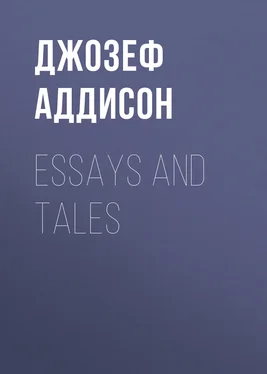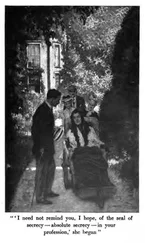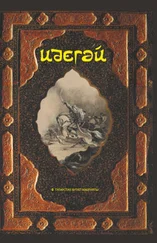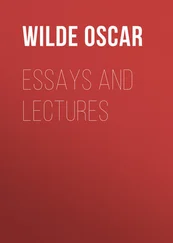Джозеф Аддисон - Essays and Tales
Здесь есть возможность читать онлайн «Джозеф Аддисон - Essays and Tales» — ознакомительный отрывок электронной книги совершенно бесплатно, а после прочтения отрывка купить полную версию. В некоторых случаях можно слушать аудио, скачать через торрент в формате fb2 и присутствует краткое содержание. Жанр: foreign_prose, foreign_antique, на английском языке. Описание произведения, (предисловие) а так же отзывы посетителей доступны на портале библиотеки ЛибКат.
- Название:Essays and Tales
- Автор:
- Жанр:
- Год:неизвестен
- ISBN:нет данных
- Рейтинг книги:5 / 5. Голосов: 1
-
Избранное:Добавить в избранное
- Отзывы:
-
Ваша оценка:
- 100
- 1
- 2
- 3
- 4
- 5
Essays and Tales: краткое содержание, описание и аннотация
Предлагаем к чтению аннотацию, описание, краткое содержание или предисловие (зависит от того, что написал сам автор книги «Essays and Tales»). Если вы не нашли необходимую информацию о книге — напишите в комментариях, мы постараемся отыскать её.
Essays and Tales — читать онлайн ознакомительный отрывок
Ниже представлен текст книги, разбитый по страницам. Система сохранения места последней прочитанной страницы, позволяет с удобством читать онлайн бесплатно книгу «Essays and Tales», без необходимости каждый раз заново искать на чём Вы остановились. Поставьте закладку, и сможете в любой момент перейти на страницу, на которой закончили чтение.
Интервал:
Закладка:
An old maid that is troubled with the vapours produces infinite disturbances of this kind among her friends and neighbours. I know a maiden aunt of a great family, who is one of these antiquated Sibyls, that forebodes and prophesies from one end of the year to the other. She is always seeing apparitions and hearing death-watches; and was the other day almost frighted out of her wits by the great house-dog that howled in the stable, at a time when she lay ill of the toothache. Such an extravagant cast of mind engages multitudes of people not only in impertinent terrors, but in supernumerary duties of life, and arises from that fear and ignorance which are natural to the soul of man. The horror with which we entertain the thoughts of death, or indeed of any future evil, and the uncertainty of its approach, fill a melancholy mind with innumerable apprehensions and suspicions, and consequently dispose it to the observation of such groundless prodigies and predictions. For as it is the chief concern of wise men to retrench the evils of life by the reasonings of philosophy, it is the employment of fools to multiply them by the sentiments of superstition.
For my own part, I should be very much troubled were I endowed with this divining quality, though it should inform me truly of everything that can befall me. I would not anticipate the relish of any happiness, nor feel the weight of any misery, before it actually arrives.
I know but one way of fortifying my soul against these gloomy presages and terrors of mind; and that is, by securing to myself the friendship and protection of that Being who disposes of events and governs futurity. He sees, at one view, the whole thread of my existence, not only that part of it which I have already passed through, but that which runs forward into all the depths of eternity. When I lay me down to sleep, I recommend myself to His care; when I awake, I give myself up to His direction. Amidst all the evils that threaten me, I will look up to Him for help, and question not but He will either avert them, or turn them to my advantage. Though I know neither the time nor the manner of the death I am to die, I am not at all solicitous about it; because I am sure that he knows them both, and that He will not fail to comfort and support me under them.
OPERA LIONS
Dic mihi , si fias tu leo , qualis eris ?
Were you a lion, how would you behave?
There is nothing that of late years has afforded matter of greater amusement to the town than Signior Nicolini’s combat with a lion in the Haymarket, which has been very often exhibited to the general satisfaction of most of the nobility and gentry in the kingdom of Great Britain. Upon the first rumour of this intended combat, it was confidently affirmed, and is still believed, by many in both galleries, that there would be a tame lion sent from the tower every opera night in order to be killed by Hydaspes. This report, though altogether groundless, so universally prevailed in the upper regions of the playhouse, that some of the most refined politicians in those parts of the audience gave it out in whisper that the lion was a cousin-german of the tiger who made his appearance in King William’s days, and that the stage would be supplied with lions at the public expense during the whole session. Many likewise were the conjectures of the treatment which this lion was to meet with from the hands of Signior Nicolini: some supposed that he was to subdue him in recitativo, as Orpheus used to serve the wild beasts in his time, and afterwards to knock him on the head; some fancied that the lion would not pretend to lay his paws upon the hero, by reason of the received opinion that a lion will not hurt a virgin: several who pretended to have seen the opera in Italy, had informed their friends that the lion was to act a part in High Dutch, and roar twice or thrice to a thorough bass before he fell at the feet of Hydaspes. To clear up a matter that was so variously reported, I have made it my business to examine whether this pretended lion is really the savage he appears to be, or only a counterfeit.
But before I communicate my discoveries, I must acquaint the reader that upon my walking behind the scenes last winter, as I was thinking on something else, I accidentally jostled against a monstrous animal that extremely startled me, and, upon my nearer survey of it, appeared to be a lion rampant. The lion, seeing me very much surprised, told me, in a gentle voice, that I might come by him if I pleased; “for,” says he, “I do not intend to hurt anybody.” I thanked him very kindly and passed by him, and in a little time after saw him leap upon the stage and act his part with very great applause. It has been observed by several that the lion has changed his manner of acting twice or thrice since his first appearance, which will not seem strange when I acquaint my reader that the lion has been changed upon the audience three several times. The first lion was a candle-snuffer, who, being a fellow of a testy, choleric temper, overdid his part, and would not suffer himself to be killed so easily as he ought to have done: besides, it was observed of him, that he grew more surly every time he came out of the lion, and having dropped some words in ordinary conversation, as if he had not fought his best, and that he suffered himself to be thrown upon his back in the scuffle, and that he would wrestle with Mr. Nicolini for what he pleased, out of his lion’s skin, it was thought proper to discard him: and it is verily believed to this day, that, had he been brought upon the stage another time, he would certainly have done mischief. Besides, it was objected against the first lion, that he reared himself so high upon his hinder paws, and walked in so erect a posture, that he looked more like an old man than a lion.
The second lion was a tailor by trade, who belonged to the playhouse, and had the character of a mild and peaceable man in his profession. If the former was too furious, this was too sheepish for his part; inasmuch that, after a short modest walk upon the stage, he would fall at the first touch of Hydaspes, without grappling with him, and giving him an opportunity of showing his variety of Italian trips. It is said, indeed, that he once gave him a rip in his flesh-colour doublet: but this was only to make work for himself in his private character of a tailor. I must not omit that it was this second lion who treated me with so much humanity behind the scenes.
The acting lion at present is, as I am informed, a country gentleman, who does it for his diversion, but desires his name may be concealed. He says very handsomely, in his own excuse, that he does not act for gain; that he indulges an innocent pleasure in it, and that it is better to pass away an evening in this manner than in gaming and drinking: but at the same time says, with a very agreeable raillery upon himself, that if his name should be known, the ill-natured world might call him “the ass in the lion’s skin.” This gentleman’s temper is made out of such a happy mixture of the mild and the choleric, that he outdoes both his predecessors, and has drawn together greater audiences than have been known in the memory of man.
I must not conclude my narrative without taking notice of a groundless report that has been raised to a gentleman’s disadvantage, of whom I must declare myself an admirer; namely, that Signior Nicolini and the lion have been seen sitting peaceably by one another, and smoking a pipe together behind the scenes; by which their common enemies would insinuate that it is but a sham combat which they represent upon the stage: but upon inquiry I find, that if any such correspondence has passed between them, it was not till the combat was over, when the lion was to be looked upon as dead according to the received rules of the drama. Besides, this is what is practised every day in Westminster Hall, where nothing is more usual than to see a couple of lawyers, who have been tearing each other to pieces in the court, embracing one another as soon as they are out of it.
Читать дальшеИнтервал:
Закладка:
Похожие книги на «Essays and Tales»
Представляем Вашему вниманию похожие книги на «Essays and Tales» списком для выбора. Мы отобрали схожую по названию и смыслу литературу в надежде предоставить читателям больше вариантов отыскать новые, интересные, ещё непрочитанные произведения.
Обсуждение, отзывы о книге «Essays and Tales» и просто собственные мнения читателей. Оставьте ваши комментарии, напишите, что Вы думаете о произведении, его смысле или главных героях. Укажите что конкретно понравилось, а что нет, и почему Вы так считаете.












